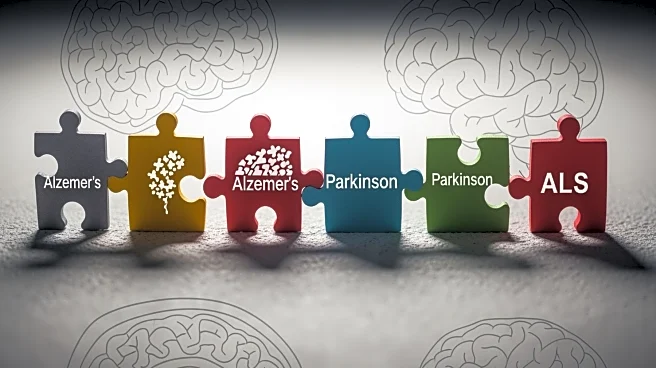What's Happening?
The Global Neurodegeneration Proteomics Consortium has identified a shared five-protein biomarker panel across Alzheimer's, Parkinson's, frontotemporal dementia, and ALS. This panel, present in APOE ε4
carriers, predicts APOE ε4 status with high accuracy, suggesting a shared molecular signature among these diseases. The discovery was made through extensive plasma measurements and proteomic analysis, highlighting the potential for a unified approach to understanding neurodegenerative diseases.
Why It's Important?
Identifying a shared biomarker profile across multiple neurodegenerative diseases offers a promising avenue for developing disease-modifying strategies. This discovery could lead to more effective treatments and improved diagnostic accuracy, potentially reducing healthcare costs associated with managing these conditions. The ability to target a common molecular signature may streamline research efforts and accelerate the development of therapeutic interventions.
What's Next?
Further research is needed to explore the mechanistic implications of this shared biomarker profile and its potential role in treatment strategies. As the understanding of these biomarkers deepens, their integration into clinical practice may become more widespread, aiding in the development of personalized medicine approaches. The continued exploration of shared molecular signatures will likely enhance diagnostic accuracy and treatment efficacy.
Beyond the Headlines
The ethical considerations surrounding biomarker research, particularly in terms of patient consent and data privacy, are significant. The integration of these biomarkers into clinical trials and their potential role in personalized medicine underscore the need for standardized protocols and rigorous validation processes. The transformative potential of shared biomarker profiles in neurodegenerative disease research highlights the importance of continued innovation and collaboration across scientific disciplines.








